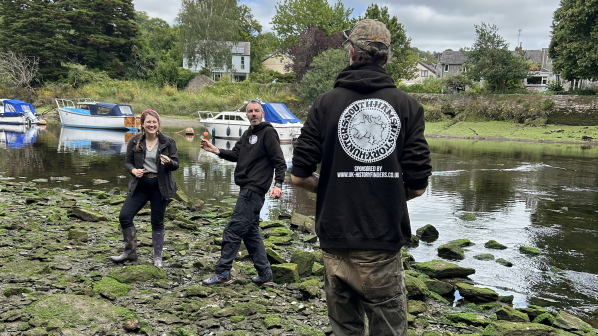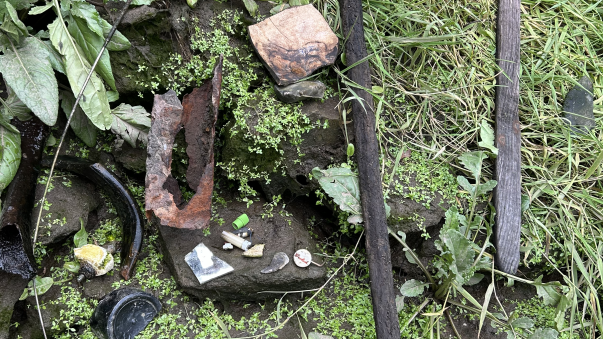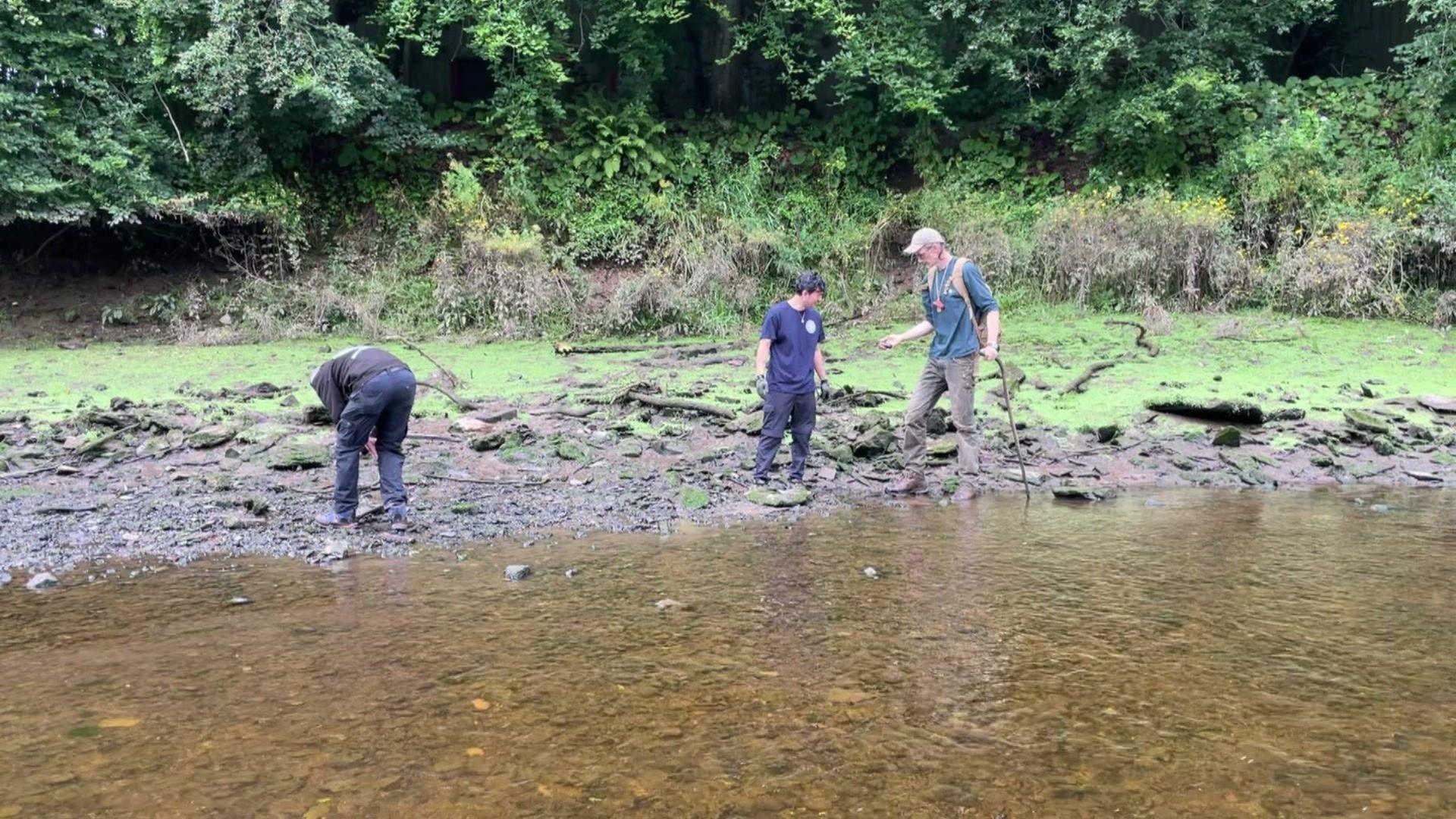Low tides reveal years of Devon's history

South Hams History Hunters say they have discovered artefacts and objects from more than 10,000 years ago in Devon
- Published
Mudlarkers from south Devon say they are on a mission to discover 10,000 years of history from the River Dart in Totnes.
The group of four scavenges the banks and shores of rivers for items of historical interest and said they wanted to document their findings and aimed to make them available to the public in the future.
Member of South Hams History Hunters Darren Murray, who has lived locally for about 30 years, said the team looked for artefacts and objects ranging from "Neolithic to nowadays".
He also said they worked alongside archaeologists and sometimes donated their finds to museums.

Darren Murray said the project was a lot bigger than the group first expected
He said: "We are finding structures which are lost, things that have disappeared but are still visible on maps, or things that are registered in conversations between two people but don't exist anymore in the real world.
"We are finding them, writing about them and researching about them, finding evidence about when they stood and what age they were in.
"It is quite a big project; a lot bigger than we thought to start with."
Mr Murray said the team still had about 18 miles (30km) of the River Dart to explore, and they aimed to publish their findings in the future.

South Hams History Hunters said the oldest things they find were flints from tens of thousands of years ago
He also said they were aiming to go into schools to talk about their finds, but, at present, going out and finding the history was a "hobby".
"The oldest things we find are flints and possibly metal objects going back tens of thousands of years. They are all over Devon near rivers and by the sea," added Mr Murray.
"We find areas on the banks of the river that we recognise as historic.
"We wait for the river tide to go down, then we search the riverbed for artefacts from that time period.
"Sometimes we get lucky and we find something from that time period and other times, and we get lucky and find something from a different time period.
"It is always exciting."
'Positive escapism'
Group member Silver Levy-So said he has always had a passion for history and described mudlarking as "escapism", adding it had a positive impact on his mental health.
"I am passionate about history as a whole. People might say that it is just a bit of pottery, but, for us, that is part of that bigger picture of those many eras of life that came before us.
"Those artefacts and objects tell us about how life was. What we are living now is a blip on the scale."
He said they have discovered pottery from medieval times up to the 20th Century.
Mr Levy-So added: "We are learning the whole civilisation of our area by picking up these artefacts."
Follow BBC Devon on X (formerly Twitter), external, Facebook, external and Instagram, external. Send your story ideas to spotlight@bbc.co.uk, external.